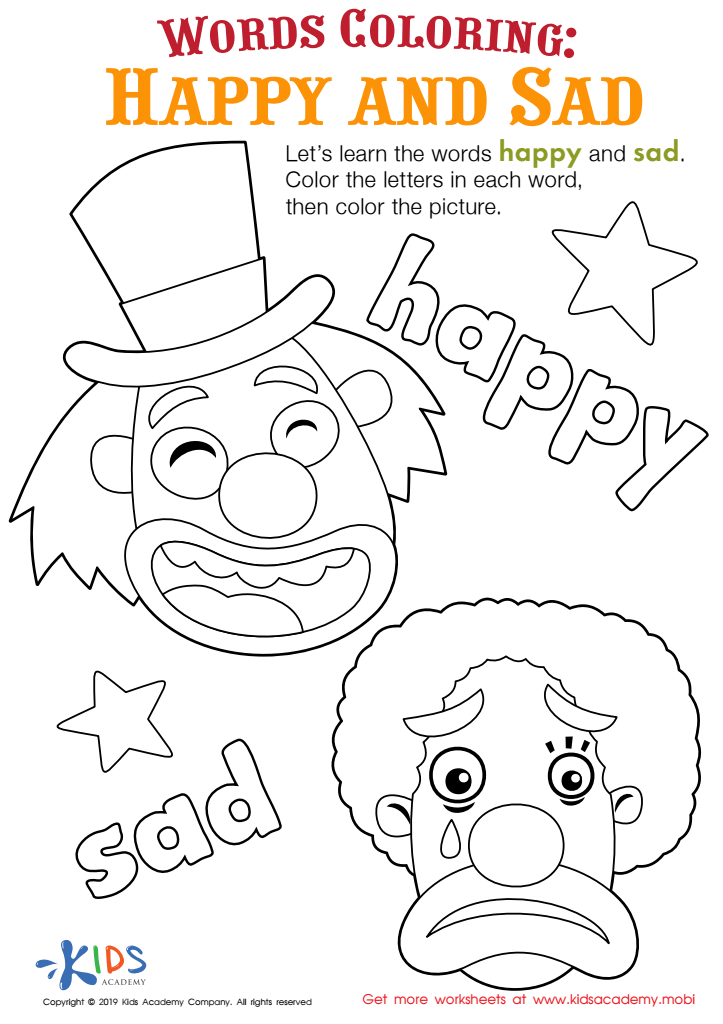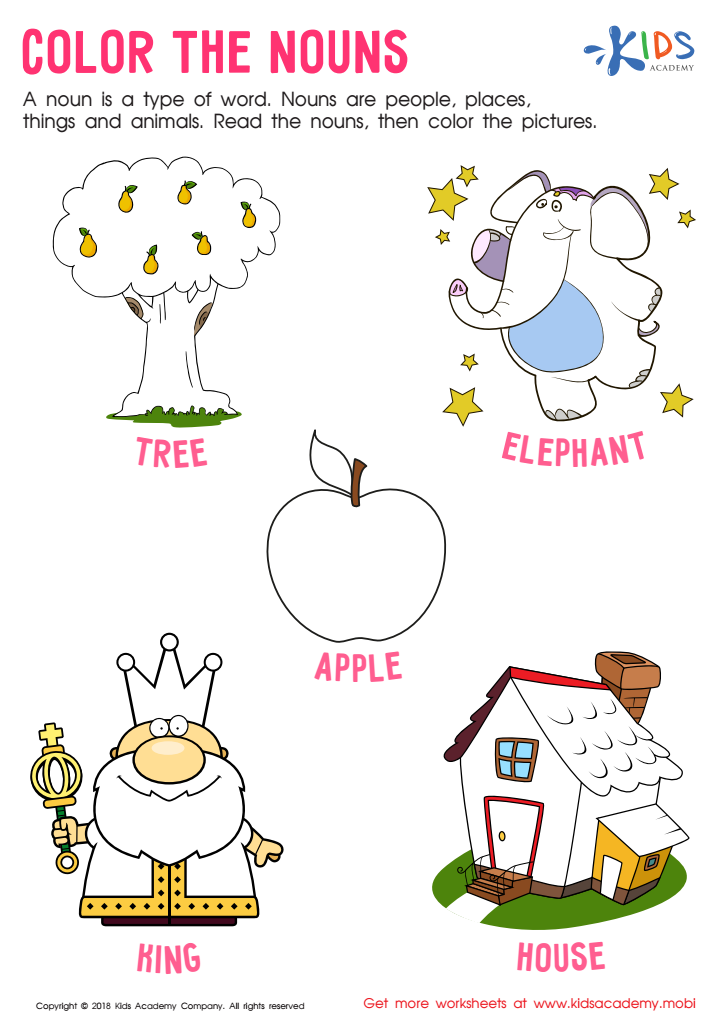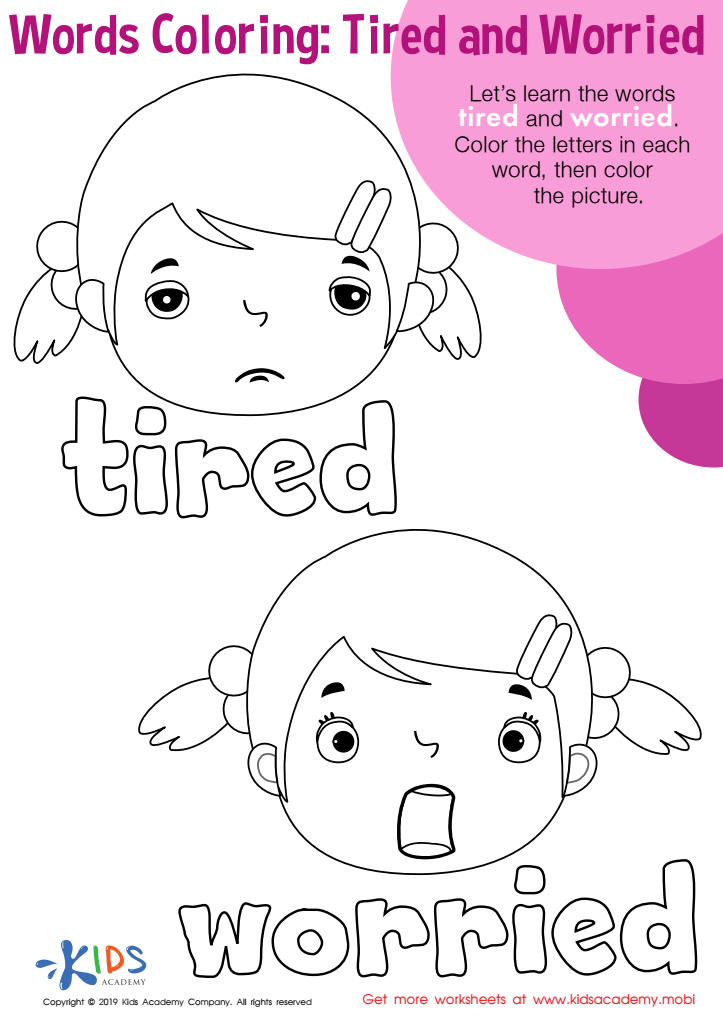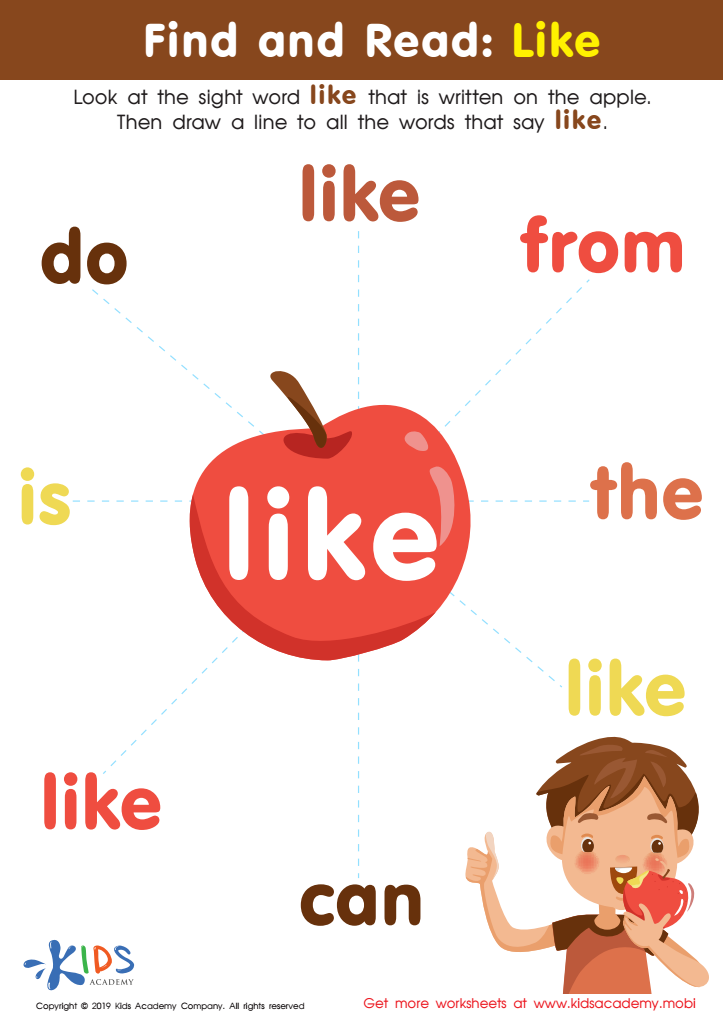Word Recognition Easy Worksheets for Ages 3-5
4 filtered results
-
From - To
Discover engaging Word Recognition Easy Worksheets designed specifically for children ages 3-5! Our printable worksheets provide a fun and interactive way for early learners to develop essential reading skills. Each worksheet features colorful illustrations and age-appropriate activities aimed at enhancing vocabulary, letter recognition, and phonemic awareness. These resources support your child’s learning journey as they practice identifying and understanding words in a playful format. Perfect for parents and educators alike, our worksheets make literacy learning both enjoyable and effective. Start building a strong foundation in reading with our easy-to-use worksheets today! Explore the world of words with Kids Academy.


Happy and Sad Words Coloring Worksheet


Color the Nouns Worksheet


Tired and Worried Words Coloring Worksheet


Find and Read: Like Worksheet
Word recognition is a critical skill for children aged 3-5, laying the foundation for literacy and language development. At this stage, children are developing their cognitive abilities, and recognizing words helps them make connections between spoken language and written text. Parents and teachers should prioritize word recognition because it promotes early reading skills, which are essential for academic success later on.
When children can recognize words, they develop confidence in their reading abilities, leading to a more positive attitude towards learning. Mastering foundational vocabulary also enhances their comprehension skills, allowing them to engage with stories and conversations more effectively. Furthermore, early word recognition fosters participation in discussions, improving social skills and communication.
Incorporating word recognition activities into daily routines—like reading aloud, using flashcards, or interactive games—creates an enriched learning environment. This playful approach makes learning enjoyable and reinforces cognitive connections. Ultimately, by supporting word recognition development, parents and teachers help children build essential skills that will benefit them in all areas of learning, setting them up for future academic achievements and a lifelong love for reading. The early years are a crucial window for nurturing children's literacy, making it vital for caregivers to be engaged in this process.

 Assign to My Students
Assign to My Students
















